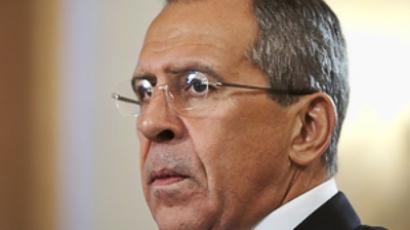“Iranians will not respond to any pressure” – Iranian UN ambassador
The UN Security Council has approved new sanctions on Iran by a strong majority vote on Wednesday. The resolution is described as the toughest yet, with the aim of pushing Tehran to halt its nuclear program.
The sanctions come after months of heated negotiations.
“In the recent months, Iran showed us more signs, not less, that it doesn’t intend to suspend its nuclear program,” said Susan Rice, US ambassador to UN.
Veto-holders Russia and China called for more balance and for no excess measures to be imposed.
“In building a nuclear power plant in [Iran’s] Bushehr, the Russian Federation is not just in words, but in actions, reaffirming the fundamental right of Iran to develop its peaceful nuclear energy program,” claimed Vitaly Churkin, Russian ambassador to the UN. “Unfortunately, the intensive efforts of the Russian Federation and of our partners have not enjoyed an appropriate response by Iran.”
As a result, Russia, the US and the majority of nations within the Council came up with a text to satisfy most in a step that Iran calls biased and unjust.
James Denselow, a writer on Middle East politics and security, called the recent sanctions “smart,” as they are targeted at those who are responsible for Iran’s nuclear program, and not ordinary people in the streets.
“It’s a very specific issue. It’s not punishing around for the very sake of it,” Denselow said. “Iran has clearly not delivered enough evidence that it is complying with the NPT to the UN Security Council. And America’s great diplomatic achievement of the Obama administration has been to bring the
Russians and Chinese on board into this process.”
The expert stresses that Iran is a signatory to the Nuclear Non-Proliferation Treaty.
“Iran has to realize the benefits of whether it stays in the NPT or leaves it,” he said. “That’s the threat that it’s been talking about since the sanctions were voted for by the UN.”
"Iranians will not respond to any pressure, in any format,” stated Mohammad Khazaee, Iranian UN ambassador.
"It is highly doubtful that Iran will comply with the new UN resolution, therefore military cooperation between Russia and Iran would not be disrupted altogether and will continue because Iran needs Russian technologies which no other country, not even China with its copycat capabilities, can produce for Iran," believes Vladimir Sotnikov from the Institute of World Economy and International Relations in Moscow.
“Iran needs Russia no less than Russia needs Iran, which is an important partner in the field of military-technical cooperation between Russia and other Asian countries,” said Sotnikov.
Washington calls the new document the toughest sanctions regime in the world today.
“It imposes binding new bans on Iranian investment abroad in nuclear facilities and activities, it bans a whole new category of weapons to be imported into Iran,” maintained Susan Rice. “It imposes asset freezes on forty new entities, more than triple the number of any previous resolution.”
This is the fourth round of sanctions adopted by the UN – so what’s different about this latest resolution?
“What is new is that nothing in this resolution pushes states to adopt measures or steps – including the use of force – that would reach beyond the measures of this resolution,” Churkin believes.
The key goal is to show Iran that international isolation will cost the country too much.
The prospect of further talks on its nuclear program remains open. The question is, how soon will Iran sit down for negotiations with the United States and the rest of the negotiators?
“We are not going to have any negotiations with the United States in particular,” Khazaee said.
Turkey and Brazil – late for the meeting by over an hour – had a fuel swap deal on the table with Iran in an attempt to avoid sanctions.
The two countries voted against the resolution.
One abstention came from Lebanon, which stressed double standards.
“Israel is the only country in the region that holds nuclear weapons,” said Nawaf Salam, Lebanese ambassador to UN.
While some may see the adopted resolution as a long-awaited victory for the US, Iran’s president – just days before the vote – said the US is in for a rude awakening. The West can forget about sitting down for talks after slapping Iran in the face with sanctions, which is something no one in the international community will benefit from.
Iran, in turn, insists its nuclear program has a peaceful nature and is aimed at producing nuclear energy.
Professor Foad Izadi from Tehran University reminded that “the nuclear program in Iran is very popular among the ordinary Iranians.”
“So when we have new sanctions, normally people don’t understand why a number of Western governments, and unfortunately Russia in this case, are punishing Iran for pursuing its peaceful nuclear program,” Izadi added.
However, Ivan Eland, director of the Center on Peace and Liberty at the Washington-based Independent Institute, thinks that Iran is at least moving to nuclear weapons, as it’s “trying to hide facilities from the international inspectors.”
“That’s not behavior that is usually equated with only a peaceful nuclear program,” he stressed.
Eland added: “But whether Iran will make the decision to actually weaponize that’s something that only the Iranians will know probably.”














